Teddy Cunningham
RAGUEL: Recourse-Aware Group Unfairness Elimination
Aug 30, 2022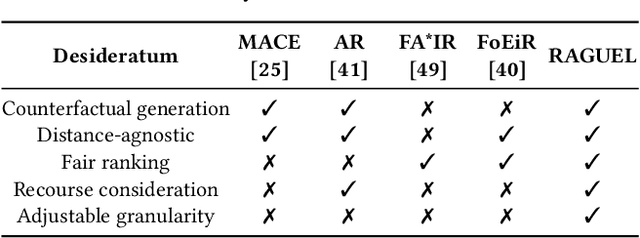
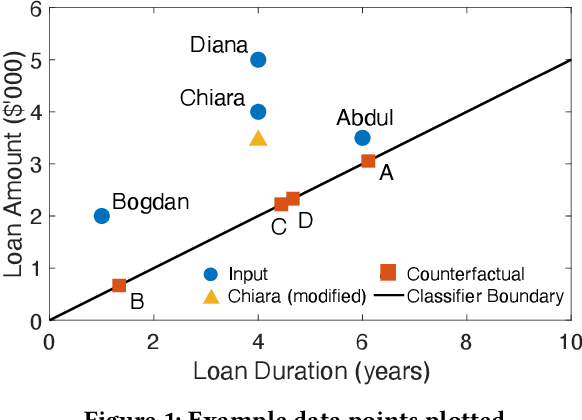
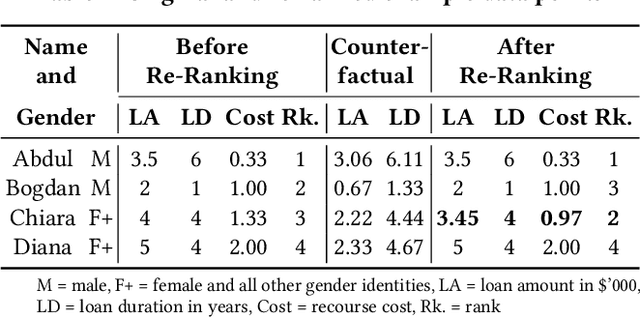
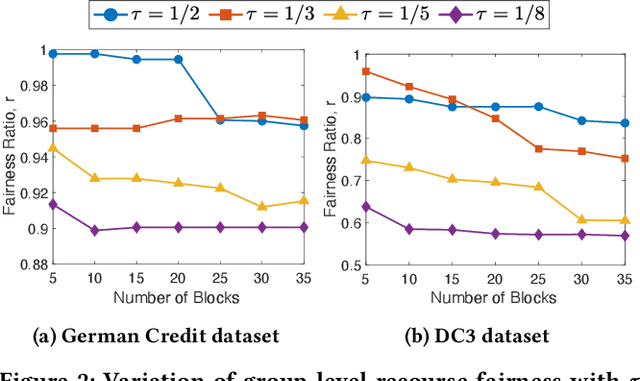
Abstract:While machine learning and ranking-based systems are in widespread use for sensitive decision-making processes (e.g., determining job candidates, assigning credit scores), they are rife with concerns over unintended biases in their outcomes, which makes algorithmic fairness (e.g., demographic parity, equal opportunity) an objective of interest. 'Algorithmic recourse' offers feasible recovery actions to change unwanted outcomes through the modification of attributes. We introduce the notion of ranked group-level recourse fairness, and develop a 'recourse-aware ranking' solution that satisfies ranked recourse fairness constraints while minimizing the cost of suggested modifications. Our solution suggests interventions that can reorder the ranked list of database records and mitigate group-level unfairness; specifically, disproportionate representation of sub-groups and recourse cost imbalance. This re-ranking identifies the minimum modifications to data points, with these attribute modifications weighted according to their ease of recourse. We then present an efficient block-based extension that enables re-ranking at any granularity (e.g., multiple brackets of bank loan interest rates, multiple pages of search engine results). Evaluation on real datasets shows that, while existing methods may even exacerbate recourse unfairness, our solution -- RAGUEL -- significantly improves recourse-aware fairness. RAGUEL outperforms alternatives at improving recourse fairness, through a combined process of counterfactual generation and re-ranking, whilst remaining efficient for large-scale datasets.
GeoPointGAN: Synthetic Spatial Data with Local Label Differential Privacy
May 18, 2022
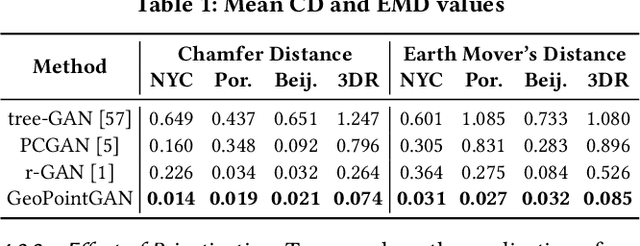
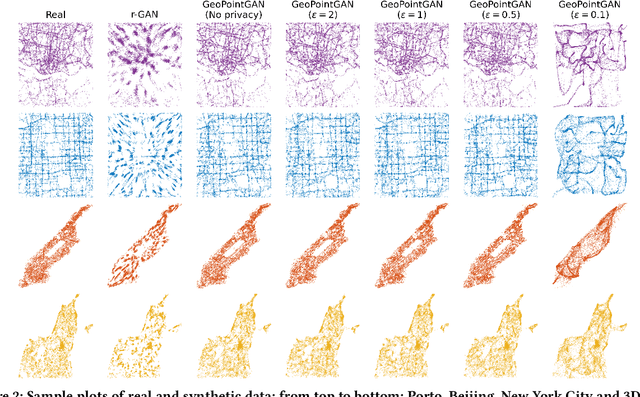

Abstract:Synthetic data generation is a fundamental task for many data management and data science applications. Spatial data is of particular interest, and its sensitive nature often leads to privacy concerns. We introduce GeoPointGAN, a novel GAN-based solution for generating synthetic spatial point datasets with high utility and strong individual level privacy guarantees. GeoPointGAN's architecture includes a novel point transformation generator that learns to project randomly generated point co-ordinates into meaningful synthetic co-ordinates that capture both microscopic (e.g., junctions, squares) and macroscopic (e.g., parks, lakes) geographic features. We provide our privacy guarantees through label local differential privacy, which is more practical than traditional local differential privacy. We seamlessly integrate this level of privacy into GeoPointGAN by augmenting the discriminator to the point level and implementing a randomized response-based mechanism that flips the labels associated with the 'real' and 'fake' points used in training. Extensive experiments show that GeoPointGAN significantly outperforms recent solutions, improving by up to 10 times compared to the most competitive baseline. We also evaluate GeoPointGAN using range, hotspot, and facility location queries, which confirm the practical effectiveness of GeoPointGAN for privacy-preserving querying. The results illustrate that a strong level of privacy is achieved with little-to-no adverse utility cost, which we explain through the generalization and regularization effects that are realized by flipping the labels of the data during training.
 Add to Chrome
Add to Chrome Add to Firefox
Add to Firefox Add to Edge
Add to Edge